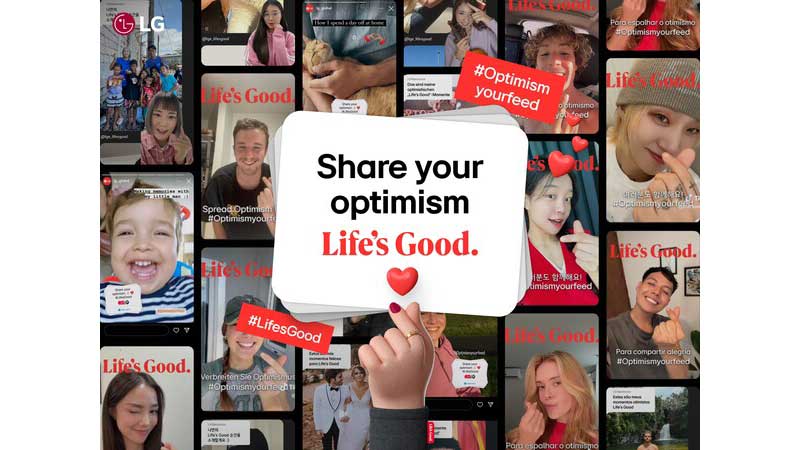The State of Global Optimism Revealed by LG in New Survey
Monday, 06 January 2025 10:30.AM
- Company Unveils the Biggest Topics of Global Optimism: Entertainment, AI and Healthcare. -
According to the latest research by LG Electronics (LG), 48 percent of consumers say they are more optimistic now than they were compared to six months ago.
The survey, conducted across 16 markets, provides extensive data on global optimism, its drivers and the demographics that feel the most optimistic and happy. The global average optimism score is 7.49/10. France, the UK and Australia were revealed to be among the least optimistic countries, scoring 14.5 percent below the average. Conversely, Saudi Arabia (12 percent above), India (10.8 percent above) and the UAE (8.1 percent above) were the most optimistic. Consumers were most optimistic about their personal growth and development (69 percent) and family dynamics (66 percent), but least optimistic about their finances.
Entertainment, including movies, TV, music and art, was identified as the most significant factor driving optimism (60 percent), followed by AI (56 percent). Less than half of the respondents chose social media (48 percent), while international crises such as war generated the least optimism.
LG conducted the survey to support and understand the nature of happiness, aligning with its brand philosophy, Life's Good. The results are part of LG's broader effort to assess the potential and influence of optimism globally, reflecting the company's commitment to enhancing consumer optimism.
The survey also reveals key aspects of generational attitudes towards optimism. Optimism and happiness both decrease with age, although the latter was found to reduce at a slower rate. Interestingly, despite younger age groups averaging higher rates of happiness and optimism, individuals under 18 reported some of the lowest scores. Additionally, 50 percent of Gen Zs expressed that optimism can be harmful, the highest of any age group. This caution may be due to their life stage, as Gen Zs were twice as likely to disagree about having the tools needed to succeed (16 percent) compared to millennials.
The Role of Social Media
Younger age groups are more likely to search online for positive content and like-minded people to improve optimism. 86 percent of consumers say social media impacts their personal lives, more than those who believe it impacts society (67 percent). Gen Zs are also more likely to talk to a therapist, indulge in shopping or take drastic actions to counter negativity, such as deleting a social media account.
In contrast, older groups tend to seek offline comforts, such as spending time outdoors, seeing family or engaging in hobbies. Younger people appear more willing to seek external methods to boost optimism and happiness compared to their older counterparts.
Optimism your feed
"As a brand that is passionate about spreading optimism, we strive every day to be the most customer-focused we can possibly be." said Kim Hyo-eun, vice president and head of LG's Brand Management Division. "Consumers want tools to feed their optimism and belief in the future, and providing this is a key part of LG's mission. That is why we launched our 'Optimism your feed' campaign, which empowered users to pull more optimistic content into their social media feeds. The campaign has been proven to help consumers boost positive feelings, with 78 percent of people saying they felt more optimistic after seeing the campaign versus before exposure."
***
Global survey conducted by GWI Fieldwork conducted from August 26 to October 7, 2024. Participants age: between 16 – 64 years old, all income levels. Sample size: 300 respondents each across 16 markets, except for 70 respondents in KSA.
SOURCE: LG Electronics
***
This article is not an advertisement and for information only.
- Related materials:
